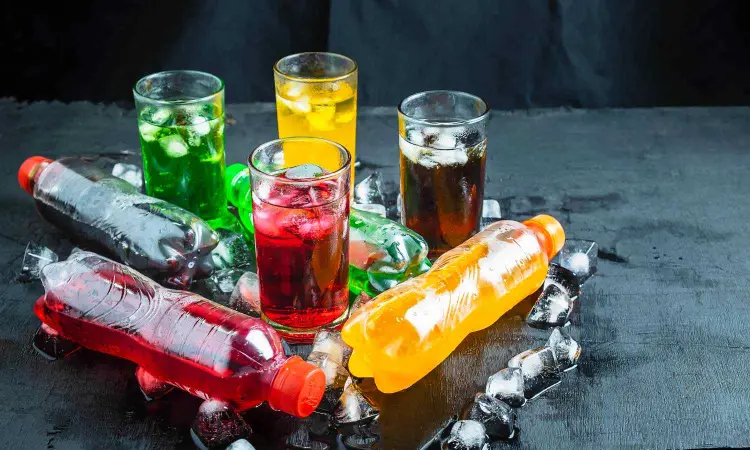By Muhammad Amaan
No fewer than 340,000 deaths globally each year from Type 2 diabetes and cardiovascular disease have been linked to the consumption of Sugar-Sweetened Beverages.
The data was contained in a study which examined burdens of type 2 diabetes and cardiovascular disease in 184 countries published in Nature Medicine on Monday.
The study found that sugary drinks were linked to 2.2 million new cases of type 2 diabetes and 1.2 million cases of cardiovascular disease in 2020.
The majority of the diabetes and cardiovascular disease occurred in Sub-Saharan Africa, Latin America and the Caribbean, according to the study.
One in five new type 2 diabetes cases in Sub-Saharan Africa and a quarter of those in Latin America and the Caribbean are attributable to sugary drinks, according to researchers from Tufts University’s School of Nutrition Science and Policy.
The researchers compiled data from 184 countries between 1990 and 2020 globally, regionally and nationally, incorporating data from the Global Dietary Database, jointly stratified by age, sex, educational attainment and urbanicity.
In Sub-Saharan Africa, the study found that SSB contributed to more than 21% of all new diabetes cases.
In Latin America and the Caribbean, they contributed to nearly 24 per cent of new diabetes cases and more than 11 per cent of new cases of cardiovascular disease.
More than 48 per cent of all new diabetes cases and 23 per cent of cardiovascular disease cases in Colombia were attributable to consumption of sugary drinks.
The study also linked nearly one-third of all new diabetes cases and 13.5 per cent of cardiovascular disease cases in Mexico to sugary drink consumption.
While in South Africa, 27.6 per cent of new diabetes cases and 14.6 per cent of cardiovascular disease cases were attributable to sugary drink consumption.
The paper’s senior author and director of Tufts’ Food is Medicine Institute, Dariush Mozaffarian, said SSBs are heavily marketed and sold in low- and middle-income nations.
Mozaffarian said that these communities are consuming harmful products and are often less equipped to deal with long-term health consequences.
“Men are more likely than women to suffer the consequences of sugary drink consumption, as are younger adults compared to their older counterparts,” he said.
The first author of the paper, Laura Lara-Castor, advocated for urgent interventions to curb consumption of sugary drinks globally.
“We need urgent, evidence-based interventions to curb consumption of SSB globally before even more lives are shortened by their effects on diabetes and heart disease,” she said.
The study’s authors called for a multi-pronged approach, including public health campaigns, regulation of sugary drink advertising, and taxes on SSB.
SSB is categorised as a liquid that contains natural or added sweeteners, including various forms of sugars such as brown sugar, corn sweetener, corn syrup, dextrose, fructose, glucose, high-fructose corn syrup, honey, lactose, malt syrup, maltose, molasses, raw sugar, and sucrose.
These may include soft drinks, juices, nectars, sweetened coffee, sweetened tea, energy drinks, and flavoured dairy.




